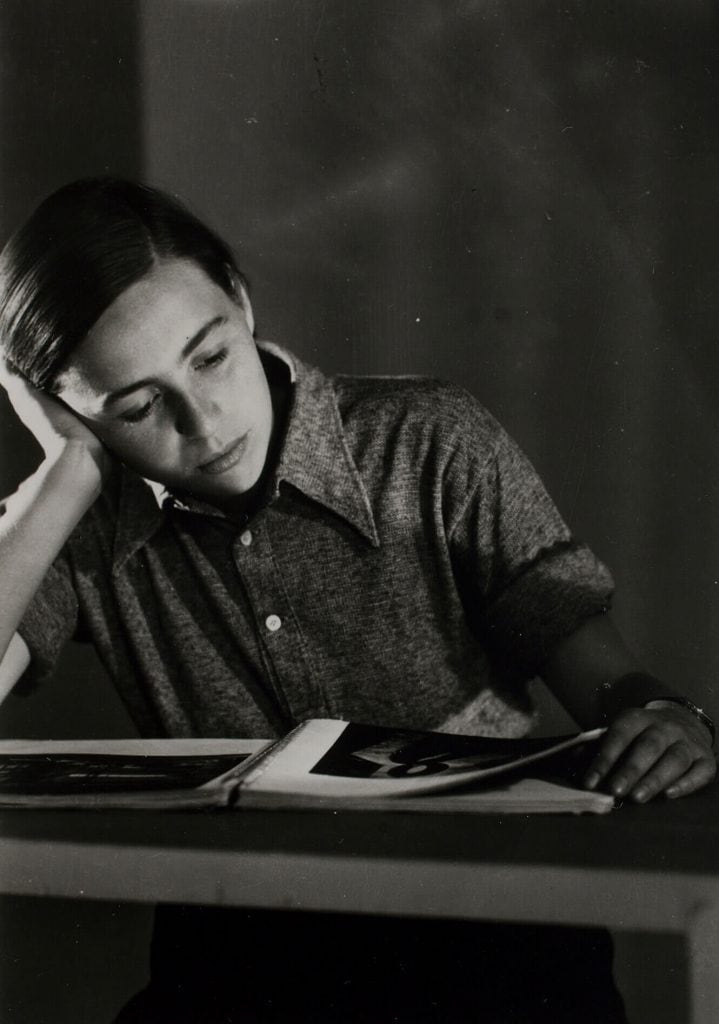
Kati Horna
B. Hungary, 1912
The Works
17

B. Hungary1912-2000
Biography
A key figure in twentieth-century photography, the Hungarian photographer Kati Horna (née Katalin Deutsch) merged avant-garde aesthetics, political engagement and creative collaboration. Born to a prosperous Jewish family, she moved to Berlin in the early 1930s and became a community of intellectuals and artists close to the Marxist philosopher Karl Korsch – alongside figures like Bertolt Brecht and Alfred Döblin. Forced to flee Germany after the rise of Hitler, she spent a few weeks in Budapest to learn photography under the Modernist photographer József Pécsi. She then moved to Paris, where she began photographing the city’s street life. Her photographs from this period reveal the influence of Paris’ artistic milieu, with Surrealist motifs often permeating her street scenes. Some of her early work also reflected her antifascist convictions. Between 1937 and 1939, she was active in Spain – one of the few women to have photographed the Spanish Civil War. But unlike her childhood friend Robert Capa, who covered the conflict for the international press, Horna positioned herself as a collaborator with Spanish anarchist groups. More than documenting the war, she used her camera as a weapon in the antifascist resistance. In 1939, she fled to México with her husband, the Spanish artist José Horna. Early on, Kati Horna’s home in México City became the epicentre of a community of exiled Surrealist artists that included her close friends Leonora Carrington and Remedios Varos. Although Horna never fully embraced the core tenets of Surrealism, many of her photographs are marked by enigmatic vignettes within otherwise ordinary scenes, or by the use of superimpositions to construct dreamlike compositions of everyday objects. At times, she employed materials such as glass bottles to visually distort the human figure, revealing a visual dialogue with Surrealist aesthetics while maintaining her own artistic autonomy. Horna’s fascination with the uncanny and her distinctive interpretation of Surrealism are vividly manifested in many of her portraits of fellow artists
Throughout her career, Kati Horna’s work circulated in numerous publications ranging from large circulation picture magazines to experimental literary journals. During the Spanish Civil War, she collaborated with antifascist newspapers and magazines such as Umbral, Mujeres Libres, Tierra y Libertad, and Libre Studio. After relocating to Mexico City in 1939, she became an active contributor not only to prominent magazines such as Nosotros, Tiempo, Todo and Arquitectura México, but also to several avant-garde and feminist periodicals including S.NOB and Mujeres: Expresión femenina – a range that reflects the wide admiration her work attracted across diverse circles. Between the 1950s and 1990s, she was a professor at several Mexican universities including the Universidad Iberoamericana and the Academia de San Carlos. Her work has been exhibited internationally, including solo exhibitions at the Cobra Museum, Amstelveen (2019); Americas Society, New York (2016); Jeu de Paume, Paris, and Museo Amparo, Puebla (2013); Museo de Arte Contemporáneo de Oaxaca (2012); and Museo Nacional de Arte, México City (2004). Her recent group exhibitions include Memory of the Streets, The Carmen Thyssen Museum, Malaga, Spain (2023), Fantastic Fables, Museum of Modern Art, Mexico City, Mexico (2023), Surrealism Beyond Borders, The Metropolitan Museum of Art, New York, which then travelled to Tate Modern (2022), Our Selves: Photographs by Women Artists from Helen Kornblum, Museum of Modern Art, New York (2022), and The New Woman Behind the Camera, Metropolitan Museum of Art, New York (2021). Her work is held in several significant collections internationally, such as the Museum of Modern Art, New York; the Metropolitan Museum of Art, New York; the Museo Nacional Centro de Arte Reina Sofía, Madrid; Tate Modern, London; The Getty Collection, Los Angeles, and many others. Horna died in Mexico City in 2000.
By continuing to use this site you consent with our cookie policy. You can read more here.
Enquire
Thank you for your enquiry. We will be in touch shortly.
















